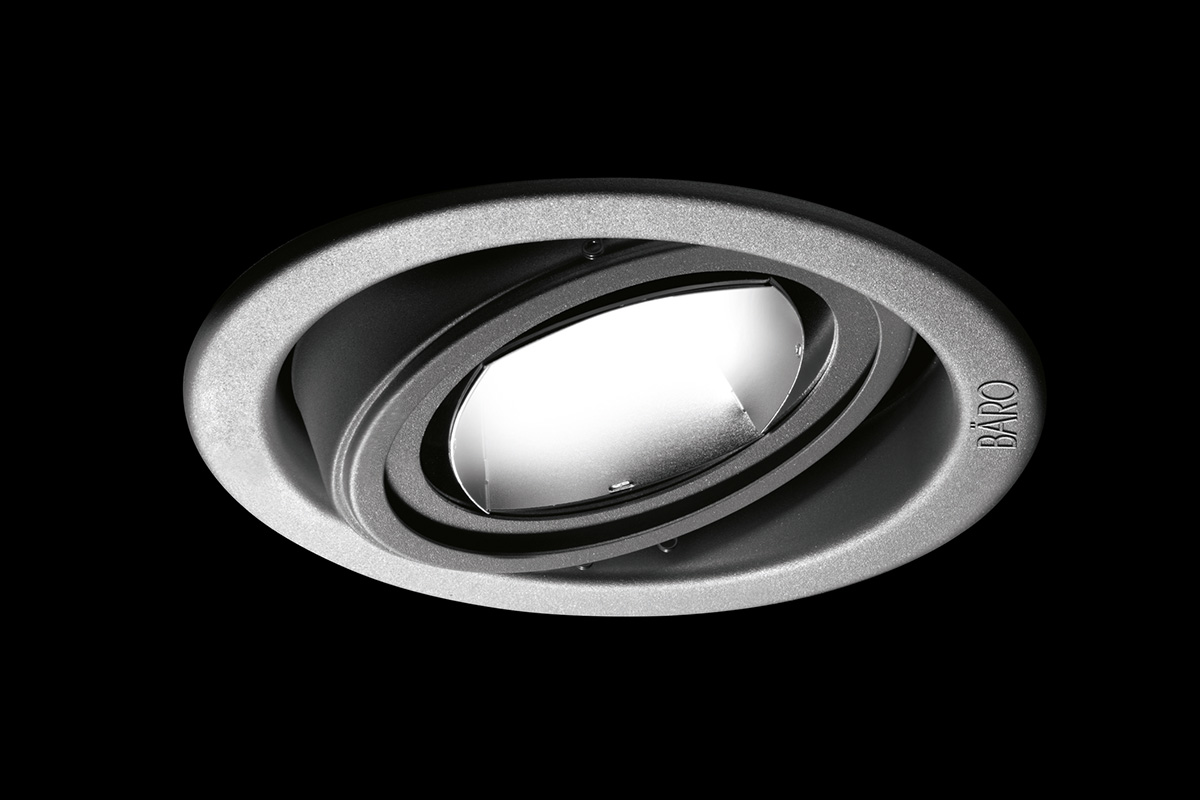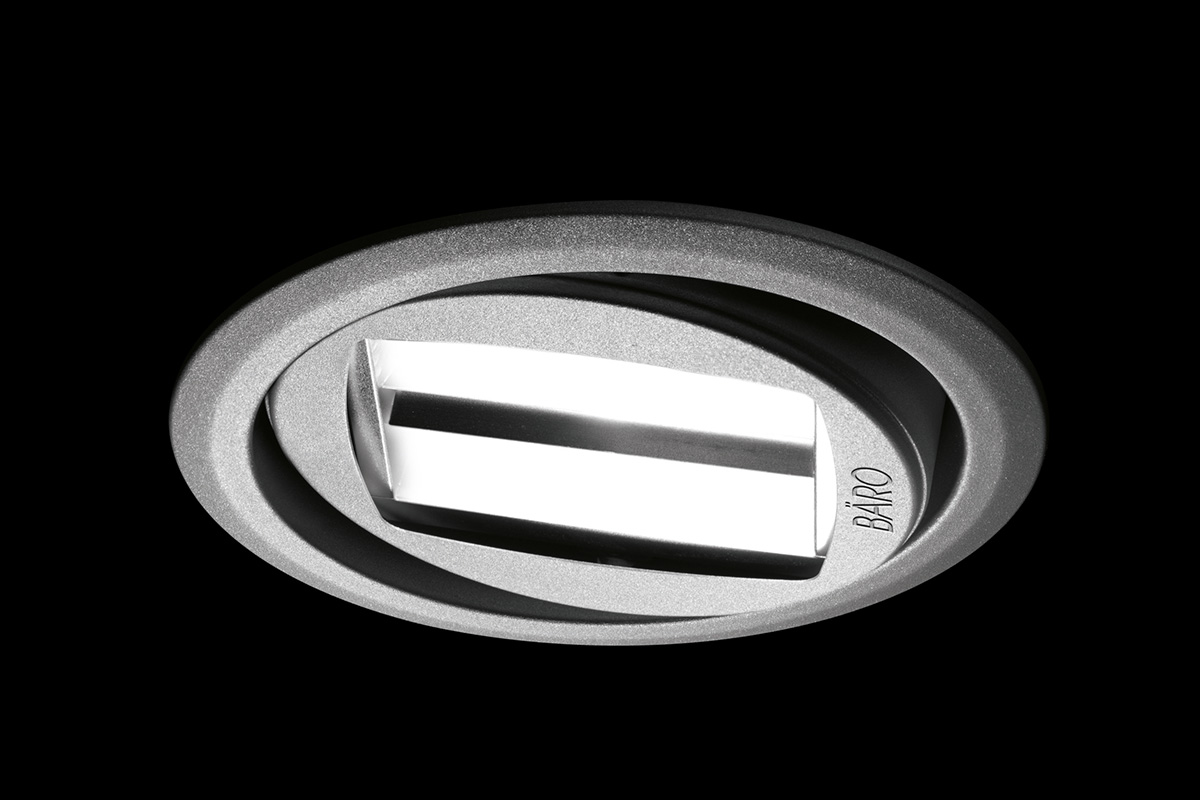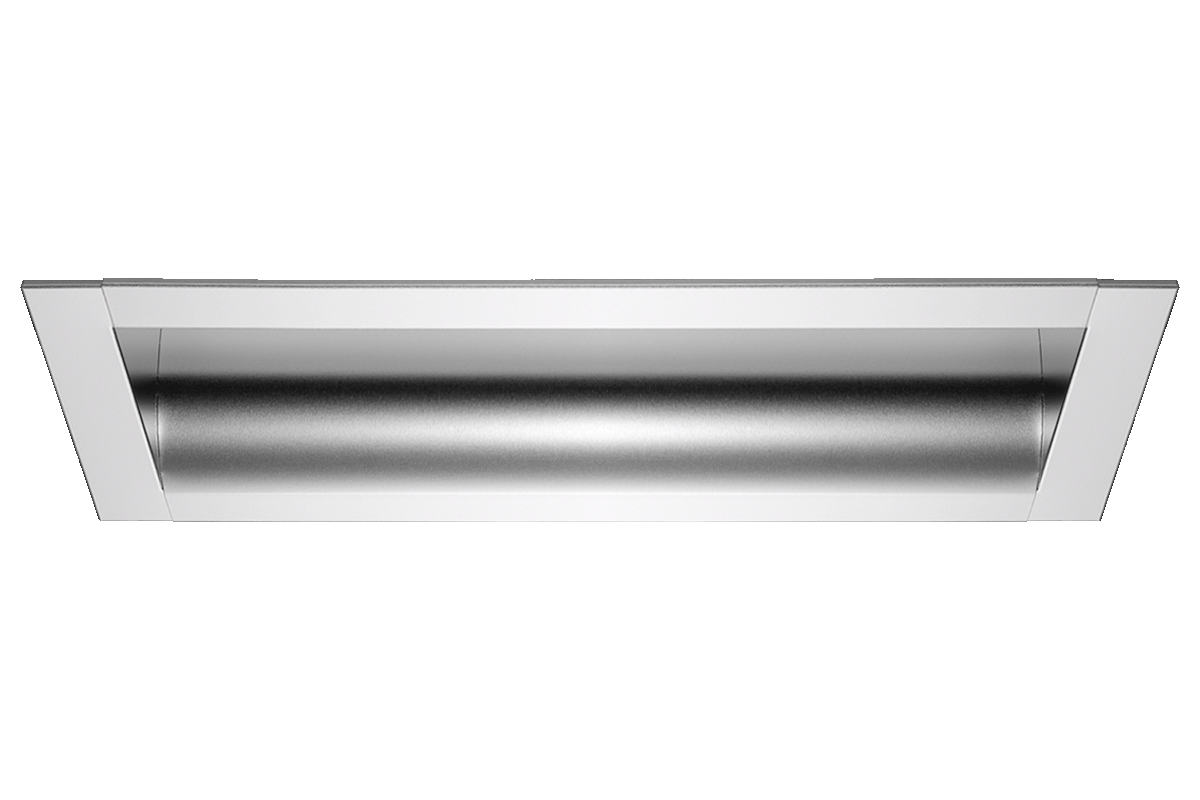The Intara SQ 175 is designed for the individual requirements of the world of retail. Depending on the desired lighting effect two emission characteristics are available: BatWing reflectors are characterised by a double asymmetrical light distribution pattern with high vertical illuminances and are first and foremost designed for illuminating aisles. WallBeam reflectors are characterised by a light distribution pattern with a focus point in the centre. Their emission characteristics make them ideal for the broad and yet powerful and accentuated illumination of vertical surfaces. The luminaires are generally available as passively and actively cooled LED versions. Intara SQ 175 can be swivelled to 30° in 5° steps, ensuring that the luminaire can be aligned precisely to meet individual requirements.
Intara SQ 175
Nr art. 51080109
Light technology
| LED | COB |
| Light colour | PearlWhite |
| Luminous flux | 2620 lm |
| System power | 23 W |
| Luminaire Efficiency | 114 lm/W |
| Reflector | Spot |
| Beam angle | 20° |
| Controller | On/Off |
Luminaire
| Swivel angle | 30° |
| Weight | 1.9 kg |
| Protection rating . class | IP 20 . III |
| Luminaire colour | silver |
Opcja
| RAL-colours, NCS-colours (powder coating or wet spraying) on inquiry, surface alloys on inquiry, honeycomb louver |
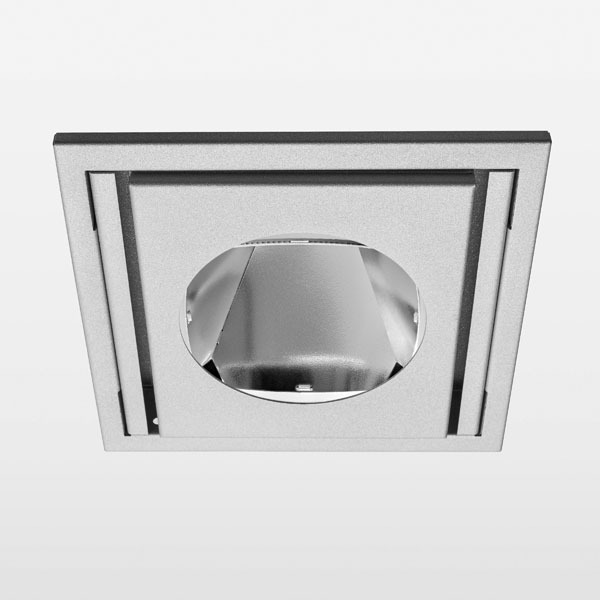
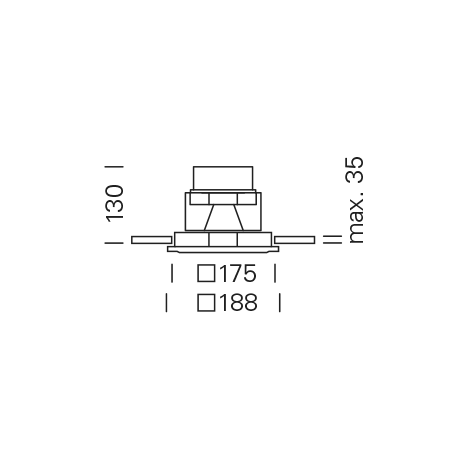
Recessed luminaire with LED, rated life of the LED L80/B10 > 50000 h, colour rendering index CRI > 90, chromaticity tolerance 2 SDCM (initial), reflector with circular light distribution pattern, swivel angle 30° luminaire housing sheet steel, powder-coated, silver, separate driver unit
76500034 driver unit, On/Off, 220-240 V / 50-60 Hz, 600 mA, camera-compatible, up to 2.5 KV interference resistance, SELV, max. 34 luminaires per circuit (B16A fuse)
76500039 driver unit, DALI, 220-240 V / 50-60 Hz, 600 mA, with GST18/5-pin connector, incl. 5-conductor feed-through wiring, camera-compatible, up to 2.5 KV interference resistance, SELV, max. 24 luminaires per circuit (B16A fuse)
Note: All data are typical values. System features may change with product improvements due to technical advances. Errors excepted.
